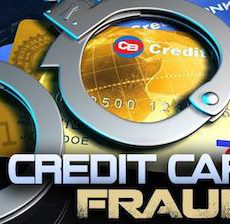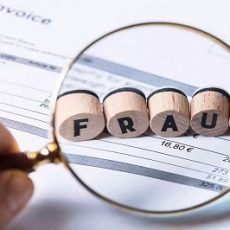Have you ever received such a letter or email?

*The picture above is a sample letter/email from a scammer. Photo courtesy of Aston University Birmingham UK.
https://www2.aston.ac.uk/ict/services/it-security/scams/nigerian/nigerian-example
This type of fraud is called the Nigerian Fraud, aka., the 419 scam or the 419 crime.
Originating from Nigeria, not knowing when, this modern form of scam resembles largely the Spanish Prisoner scam which was rampant in the late 18 century.
Whatever the variation in form (the Spanish Prisoner scam, the black money scam, the Nigerian Prince Scam, Fifo’s Fraud and the Detroit-Buffalo scam etc.), this type of fraud/scam can be classified as the advance-fee scam, as they all involve promising the victim a significant share of a large sum of
money, in return for a small up-front payment, which the fraudster
requires in order to obtain the large sum.
In Nigeria, Criminal Code Section 419 states: “Any person who by any false pretence, and with intent to defraud,
obtains from any other person anything capable of being stolen, or
induces any other person to deliver to any person anything capable of
being stolen, is guilty of a felony, and is liable to imprisonment for three years.”
Hence the code name 419 fraud, or 419 crime.
Ironically, up to 61% of the 419 crime perpetrators are located in the United States, followed by 16% in the UK, and only 6% in Nigeria.
You may scoff the stupidity of the scam, not believing anyone would ever take the bite, but the scam works, not on you but it works all the time, and all over the world.
A United States government report in 2006 indicated that Americans lost
$198.4 million to Internet fraud in 2006, averaging a loss of $5,100 per
incident. (Wikipedia: Advance-fee scam)
The recipient of the 419 fraud letter will be typically told:
- There is unclaimed money or gold that the letter sender needs help accessing.
- A stolen fortune has been amassed and the sender of the letter needs help getting it out of the country.
- A corporate or government official has embezzled funds and must get the money out of the country.
- Money has been won or inherited, but the letter sender needs help getting it out of the country.
So what to do if you get such a letter/email?
The FBI offers Tips for Avoiding Nigerian Letter or “419” Fraud:
-
If you receive a letter or e-mail from Nigeria asking you to send
personal or banking information, do not reply in any manner. Send the
letter or message to the U.S. Secret Service, your local FBI office, or the U.S. Postal Inspection Service. You can also register a complaint with the Federal Trade Commission’s Complaint Assistant. -
If you know someone who is corresponding in one of these schemes,
encourage that person to contact the FBI or the U.S. Secret Service as
soon as possible. -
Be skeptical of individuals representing themselves as Nigerian or
foreign government officials asking for your help in placing large sums
of money in overseas bank accounts. - Do not believe the promise of large sums of money for your cooperation.
- Guard your account information carefully.
All good reminders, but all the above tips can boil down to one simple act:
Laugh if off and ignore it.
Unless you really believe “every dog has its day” and it’s finally your day to be hit by a God sent.
Further reading






